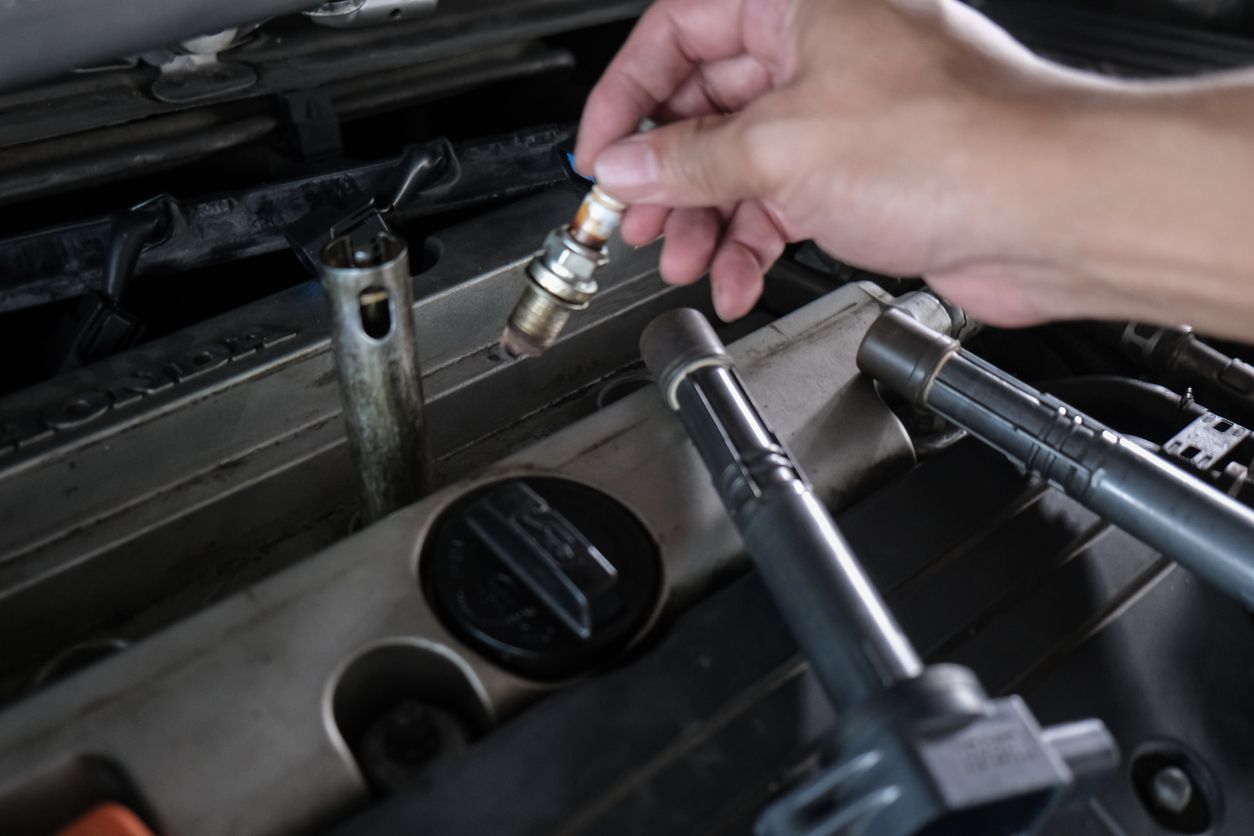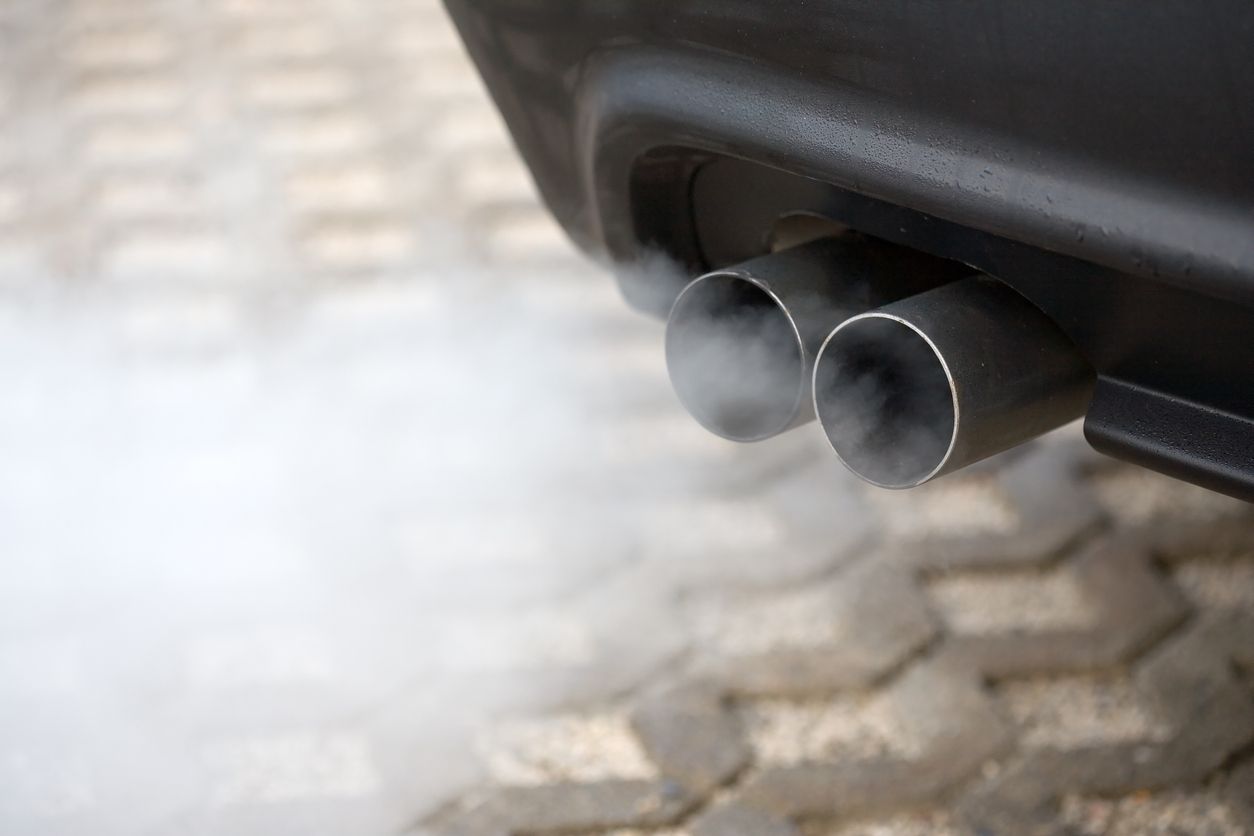The topic of ignition coils really gets us fired up. As a crucial component of your vehicle’s ignition system, their health is directly linked to the performance of your spark plugs and, therefore, your engine. In fact, without properly functioning ignition coils, your engine may not run well or start at all. Read on to learn how ignition coils work and signs that yours may have failed.
What are Ignition Coils?
An engine needs four things to run — air, fuel, compression, and spark. Ignition coils take care of the “spark” part, delivering as much as 60,000 volts of power to your vehicle’s spark plugs. How they do this is nothing short of magic.
By opening and closing a circuit in the primary winding of copper wire in the coil, a magnetic field across those windings collapses. Every time the magnetic field collapses, a momentary voltage spike occurs. This effectively increases 12-volt car battery power to a few hundred volts in the primary windings and tens of thousands in the secondary windings that the spark plugs need to operate.
On older vehicles, a distributor was used to take power from a single coil and distribute it to each spark plug at the correct intervals. While effective for the time, this single coil setup wasn’t as accurate or powerful as the coil-on-plug (COP) design cars use today.
In COP setups, a distributor isn’t necessary to split a single coil’s energy. Instead, each spark plug typically has its own designated ignition coil, and a computer uses various sensors to determine how much power the spark plugs need and when they should fire.
How Long Do Ignition Coils Last?
Ignition coils generally last 80,000 to 100,000 miles. However, as with most vehicle components, certain conditions like the ones below may cause them to fail sooner.
Incorrect Air-Fuel Ratio
If your fuel-air ratio is out of balance and causing your engine to run too lean or too rich, your spark plugs can develop problems that impact your ignition coils. This is because mixtures with too much air (lean) may wear out spark plugs sooner since they require more voltage to detonate, generate excessive heat, and are more likely to misfire. On the other hand, mixtures that are too heavy on fuel (rich) can cover spark plugs in carbon deposits.
In both situations, ignition coils are forced to work overtime to deliver enough voltage to combust poor air-fuel mixtures or overcome the damage and grime caused by them.
Incorrect Spark Plug Gap
For spark plugs to operate properly, the space between their electrodes must be gapped correctly. Too small of a gap, and the spark generated may be too weak to combust fuel well. Too large of a gap, and the spark may not jump the gap consistently or may force ignition coils to deliver more voltage.
Over time, spark plug gaps naturally widen, so it’s important to monitor the health of your spark plugs by paying attention to these six signs your plugs might need to be replaced.
Valve Cover Leaks
Though COP ignition coils may deliver stronger sparks with more accurate timing than single coil setups, their positioning makes them incredibly susceptible to moisture — and it’s no secret that electronics and moisture don’t mix well.
In many COP setups, the coil sits directly above the spark plug, which resides inside a tube in the engine's valve cover. Over time, the rubber between the spark plug tube and the valve cover may break down and let oil inside of that tube, fouling spark plugs and ignition coils in the process.
What are the Symptoms of a Failing Ignition Coil?
A failed ignition coil can severely damage your engine, so keep an eye out for these five ignition coil failure symptoms.
1. An Illuminated Check Engine Light
Fortunately, if your vehicle has a computer running things instead of a distributor, chances are that it’ll notice when an ignition coil has gone bad. When it does, it’ll illuminate your check engine light so that a professional technician can use an OBD-II scanner to identify the problem.
2. Difficulty Starting Your Engine
Since ignition coils are responsible for delivering electricity to your spark plugs, you may notice that starting your engine is difficult with a failed ignition coil. In fact, if you have a single ignition coil, your vehicle may not start at all due to no spark being delivered to the spark plugs. With COP setups, however, you may have to feel for symptoms of a “dead” cylinder, like jerky or sputtery starts.
3. Misfiring
That feeling of having a “dead” cylinder is called misfiring, and may also occur while driving. If your engine is misfiring, it may run poorly, shake, and vibrate when idling — and jerk or sputter while driving. A bad misfire will also cause your check engine light to flash, indicating a severe issue that needs to be addressed immediately. Misfiring puts incredible strain on engine components, so we recommend getting your vehicle looked at ASAP if you notice any of these symptoms.
4. Less Power and Reduced Fuel Efficiency
When spark plugs don’t receive enough electricity from the ignition coil, they may fail to spark or do so intermittently — resulting in reduced power output. When this happens, your engine makes up for the lack of power by consuming more fuel, which reduces gas mileage and can foul spark plugs. So watch out for stalling, slow acceleration, and rough idling, since they’re all symptoms of a bad ignition coil.
5. Backfiring
If your engine attempts to burn more fuel to compensate for the bad ignition coil, it may also backfire. Backfiring happens when unburnt fuel travels through the exhaust system and detonates. If your engine is backfiring, you may notice loud popping sounds coming from the rear of your vehicle.
Can You Drive with a Bad Ignition Coil?
If you’re rocking a single ignition coil, you probably won’t be able to start your car, let alone drive it. If you have a COP setup, it may be possible to drive your vehicle with a failed coil, but we advise against it since doing so can be unsafe and damaging to your engine.
How Long Can You Drive with a Bad Ignition Coil?
Just long enough to get to your nearest Firestone Complete Auto Care! A faulty ignition coil can lead to serious discomfort on the road — from stalling and backfiring to engine misfiring. Ensure a safe and smooth transit for you and your passengers when you stop by your local Firestone Complete Auto Care for inspections and Engine Care Services. Schedule an appointment today!



